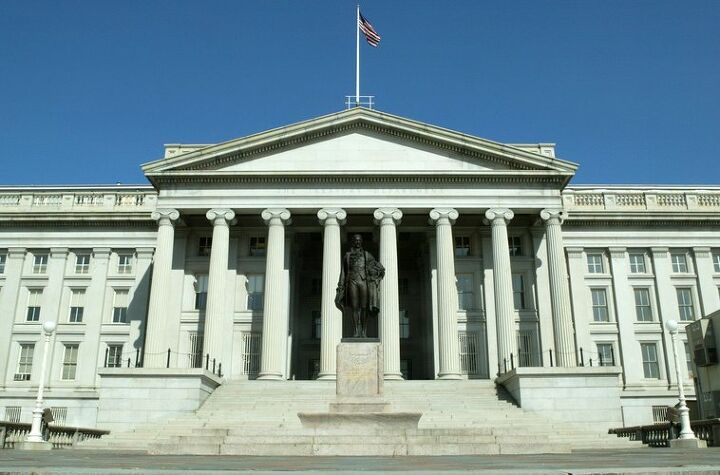Was The Government's Divestment of GM Stock Insider Trading?
Back in 2004, perfectionist homemaker and well known TV personality Martha Stewart was charged with insider trading. As presented, the facts in the case were simple. Martha owned stock in a medical research company called ImClone and, like a lot of people who invest in tech firms, she was hoping for a big payout when their product, a promising new cancer treatment, went on the market. Unfortunately, the FDA chose not to approve the drug and the value of the stock looked set to take a beating once the decision was announced. According to the charges initially brought against her, Martha and many of the company’s top executives learned of the FDA’s decision though their inside connections the day before it was publicly announced and were able to sell their shares before they crashed. That’s against the law and many of the people caught up in the scandal, including Martha who was convicted on the charge of making false claims to a federal investigator, ended up going to jail.
The above case is a useful example because it offers a clear cause-and-effect pattern and plays out along such a short timeline. Despite Martha’s protestations that she was innocent, the dots here appear to be easily connected. Most insider trading cases, however, require a little more imagination. The connections aren’t always so clear cut and sometimes the cases play out over a period of years. Take, for example, the US Government’s recent divestment of its massive amount of GM stock and the subsequent recall debacle that now threatens to drive that company’s stock prices through the floor. Coincidence? Some people think not.
Last December, the US Government sold its remaining shares in General Motors and ended a controversial bailout program that ultimately cost the American taxpayer something on the order $10 billion. At the time, the move puzzled many investment experts who argued that the government could have lessened its losses by simply holding onto the stock, which was trending upward at the time, and selling when its value was higher. It makes sense, right? The USG bought high and then sold low, even a novice investor like me knows that’s the opposite of what you’re supposed to do, so why not simply wait?
The move that looked so stupid then looks like genius today. In February of this year, just a couple months after the sale, GM announced the recall of 1.4 million cars for faulty ignition switches. In the months since, more GM vehicles have been recalled for other problems and, if you have been following the reports here on TTAC, you know that that the number of vehicles involved now exceeds GM’s total sales for the past 5 years! The question is did the government have inside knowledge that this was on the way? Well, evidence is emerging that GM had data going back to at least 2007 that the ignition switches were failing to function properly and the government’s own safety watchdog, the National Highway Traffic Safety Institute (NHTSA) shows the company was actively investigating the problem during the 2009 bailout. At some level, then, the government did know.
Whether or not the timing of the stock sale rises to the level of insider trading, however, remains to be seen. The US Government is bigger and more complex than most of us will ever know and the individual agencies don’t always communicate with one another with the efficiency we might expect. The NHTSA has an entirely different focus than the Treasury Department and the chances of their reports coming across the desk of the person charged with maintaining that portfolio are extremely small. Still, the appearance of malfeasance is enough to send the tin foil hat wearers into a frenzy and damage the public’s confidence in the markets. The matter needs to be looked into.
Thomas Kreutzer currently lives in Buffalo, New York with his wife and three children but has spent most of his adult life overseas. He has lived in Japan for 9 years, Jamaica for 2 and spent almost 5 years as a US Merchant Mariner serving primarily in the Pacific. A long time auto and motorcycle enthusiast he has pursued his hobbies whenever possible. He also enjoys writing and public speaking where, according to his wife, his favorite subject is himself.
More by Thomas Kreutzer
Latest Car Reviews
Read moreLatest Product Reviews
Read moreRecent Comments
- Probert Captions, pleeeeeeze.
- ToolGuy Companies that don't have plans in place for significant EV capacity by this timeframe (2028) are going to be left behind.
- Tassos Isn't this just a Golf Wagon with better styling and interior?I still cannot get used to the fact how worthless the $ has become compared to even 8 years ago, when I was able to buy far superior and more powerful cars than this little POS for.... 1/3rd less, both from a dealer, as good as new, and with free warranties. Oh, and they were not 15 year olds like this geezer, but 8 and 9 year olds instead.
- ToolGuy Will it work in a Tesla?
- ToolGuy No hybrid? No EV? What year is this? lolI kid -- of course there is an electric version.




































Comments
Join the conversation
"Was The Government’s Divestment of GM Stock Insider Trading?" Well DUH.
Recently at Brookings - http://www.brookings.edu/blogs/brookings-now/posts/2014/05/summers-marchionne-2009-auto-bailout